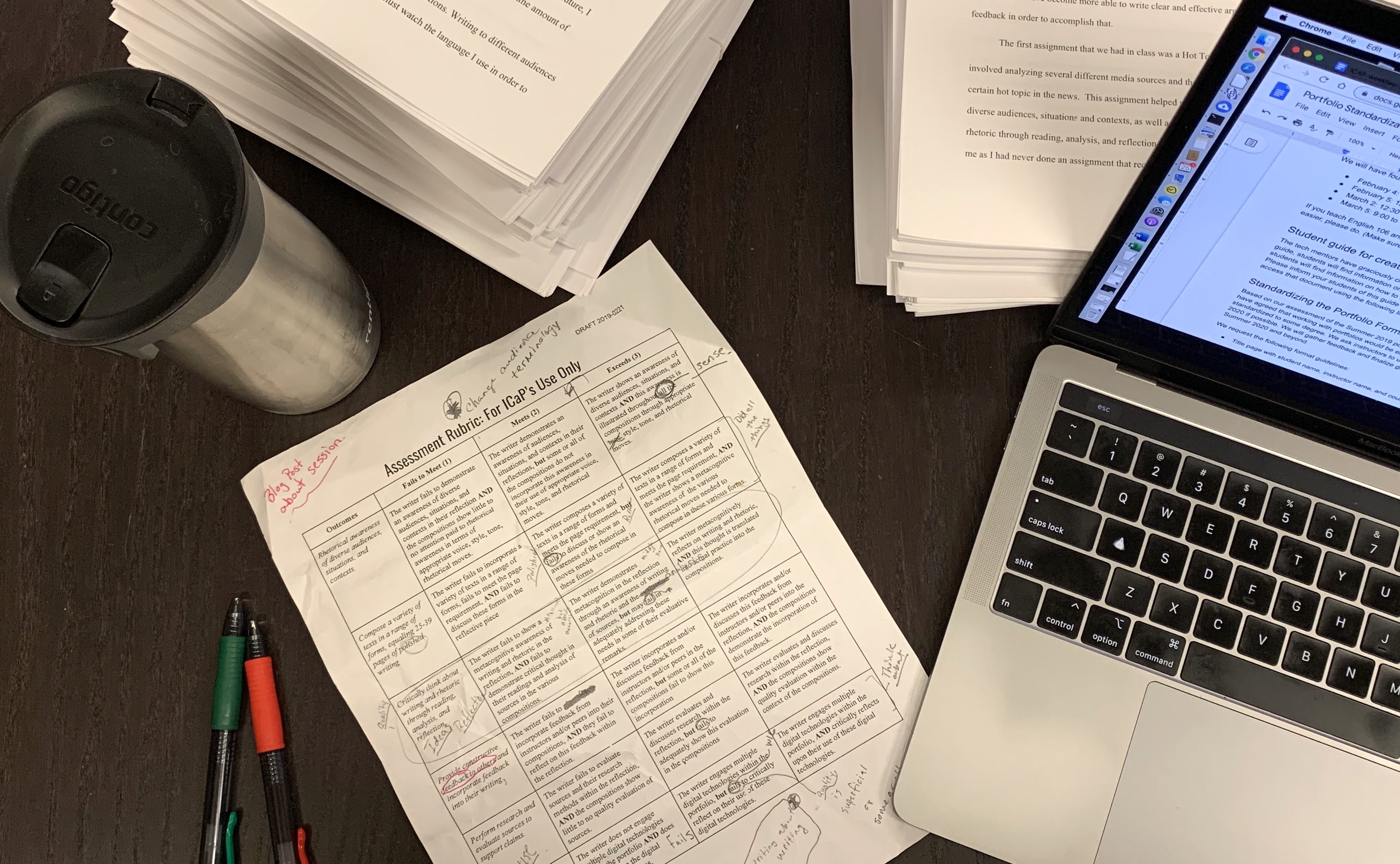Curriculum

The PhD program in Rhetoric and Composition is 5 years and requires a total of 60 credit hours, which is made up of coursework and research hours. The graduate manual lists more specific rules and regulations. The curriculum listed below was updated in 2020 and applies to students entering the program in that year and later. Course and secondary area titles may vary slightly in future.
In addition to the requirements below, all students register for and attend our biannual Hutton lecture series course, and earn course credit for their first time.
To earn a PhD in our program, students must complete:
- 4 core courses (see below)
- 30 research hours
- Preliminary exam portfolio (3 article-length essays usually written during the summer after year 2)
- Dissertation prospectus (and oral defense)
- Dissertation (and oral defense)
The core curriculum referenced above is as follows:
- English 591, Composition Studies: Theories and Practices: The course historicizes composition theory and practice in the U.S. from its origins in the late 1800s, emphasizing developments that have shaped the discipline since the 1960s through the present.
- English 622, Ancient Rhetorics: The course historicizes issues in ancient rhetoric from the sophists to the end of the classical age, and includes attention to ancient non-Greek rhetorical traditions.
- English 625, Seminar on Empirical Research on Writing: The course introduces the varieties of empirical research into writing focusing on critique, methodology, and research planning.
- English 626, Contemporary Theory and Rhetoric: The course historicizes how postmodern theory, contemporary rhetorical theory, and contemporary cultural practices (cultural, political, ethical, philosophical, technological, aesthetic) influence the study and teaching of rhetoric and writing.